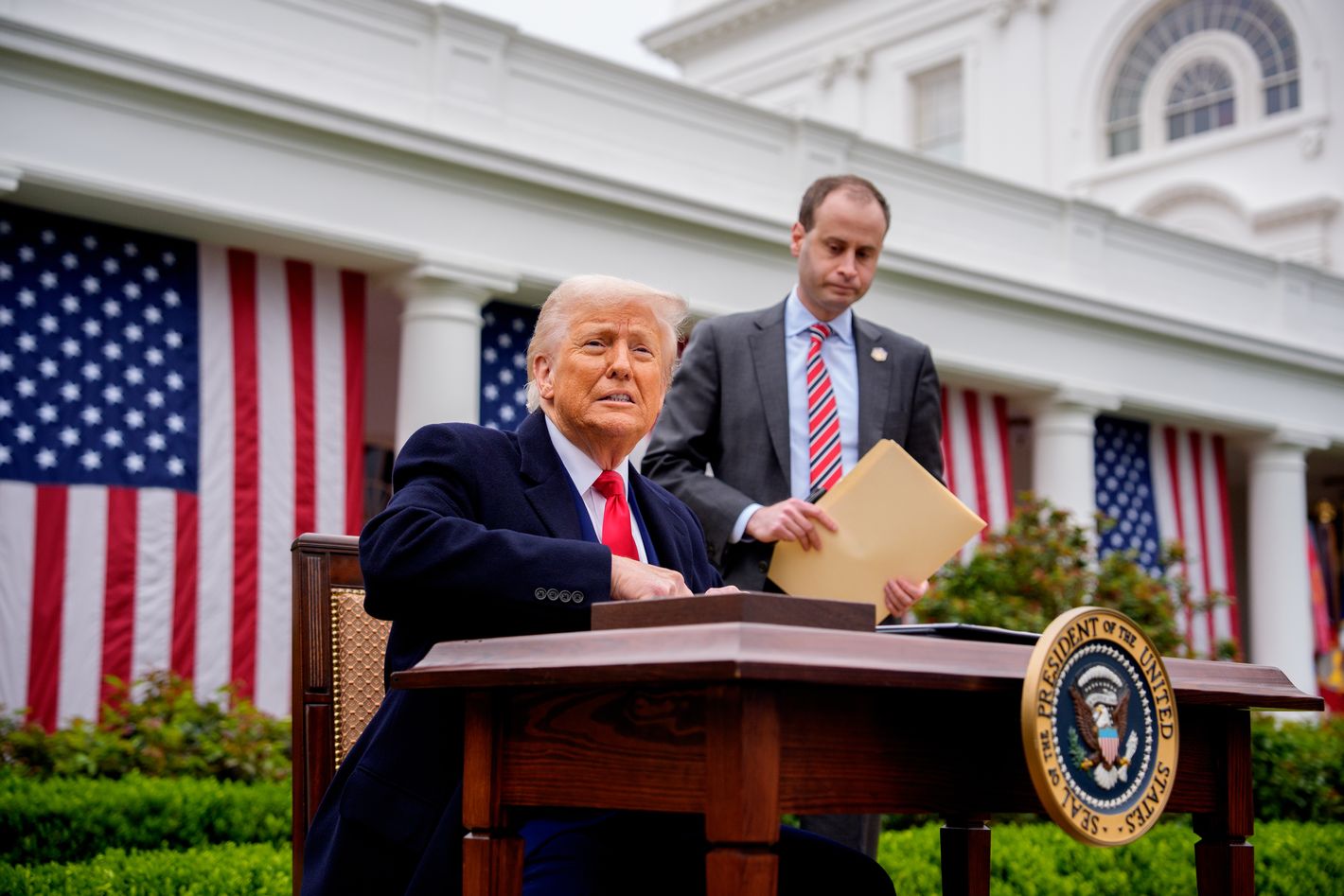Photo: Andrew Harnik/Getty Images
To those of us who have been closely watching the slow unfolding of Donald Trump’s legislative agenda in Congress, it all looks like a giant Jenga tower: imposing but very fragile. Partly because of his party’s narrow margins of control (particularly in the House) and partly because of the “one big, beautiful bill” strategy of cramming nearly everything he wants accomplished into a single budget-reconciliation measure, the success of the whole initiative will likely come down to a few all-or-nothing votes whereby the package will fly to Trump’s desk or collapse in immense disarray. And while the success enjoyed so far by Mike Johnson and John Thune in keeping the troops in line may boost the odds of it all working out in the end, the slow forward momentum of the budget process has depended in no small part on tricks used to delay the resolution of major differences of opinion dividing House and Senate Republicans and factions in each chamber.
Even as Congress creeps toward enactment of a budget resolution this month, we don’t know the level of tax or spending cuts it will impose, much less a lot of the details, including hot-button topics like Medicaid benefit cuts.
Events outside Congress have already stressed those working inside Congress: notably the Elon Musk–led DOGE initiative that has usurped congressional authority while mobilizing public opposition to the austerity measures Republicans intend to pursue legislatively as well as via executive actions. GOP lawmakers have been repeatedly blindsided by DOGE raids on federal agencies, often accompanied by cartoon-villain boasts from Musk and his minions about the damage they are inflicting on “useless” federal employees and the “parasites” they serve. But they cannot object to this largely nihilistic behavior without displeasing the Boss, so they’ve bitten their tongues.
But now Trump himself has given his congressional allies a whole new cross to bear: his audacious and market-crashing global tariff regime. Even those who believe Trump is doing the right thing in seeking to reorder the entire global trading system (probably a minority of congressional Republicans), and that it will eventually produce positive results for U.S. growth and employment, have to acknowledge (as Trump has) that the short-term consequences could be painful. For that very reason, the period of transition to the planned Fortress America will likely be very rocky politically. Will Senate and particularly House Republicans facing difficult contests in 2026 simply salute and march off the cliff in lockstep support of Trump’s legislative agenda if his job-approval ratings go significantly underwater? Will they demand modifications in that budget-reconciliation bill that hard-core MAGA shock troops in safe seats will reject? How does the Jenga tower stay stable?
Beyond the basic politics of the tariff blitz, its economic effects could unravel some of the assumptions underlying Trump’s legislative agenda. Restored inflation could increase political resistance to domestic-spending cuts as consumer purchasing power erodes. And if the nightmare of stagflation (inflation combined with reduced economic growth) descends on the U.S. economy, both financial markets and the Federal Reserve may take actions to counteract what the Republican Congress is trying to do, even as recessionary fears undermine the case for federal budget austerity.
As Punchbowl News reports, Republicans in Congress are increasingly frustrated by the situation:
The climate in Washington and across the country — both politically and economically — is making it much more difficult for Republicans to pass a massive tax-and-cut plan. Equity markets are getting rocked. Economists are already saying that a recession is possible. It will be difficult for Republicans to make the case that they should cut government spending. One almost wonders if the president should’ve waited on his tariff regime until after the reconciliation bill was passed.
The overriding point is that passage of Trump’s legislative agenda depends not just on partisan loyalty to the 47th president, but on a reasonably stable political and economic environment. It’s just the worst possible time for that environment to be shaken up like a snow-globe landscape by presidential actions that have massively increased uncertainty about the immediate future of the United States internationally and domestically. The Jenga tower of legislation will be much harder to keep upright. It will be interesting to see if Trump himself understands everything he is putting at risk with his beloved tariffs and the trade war they have already sparked.

